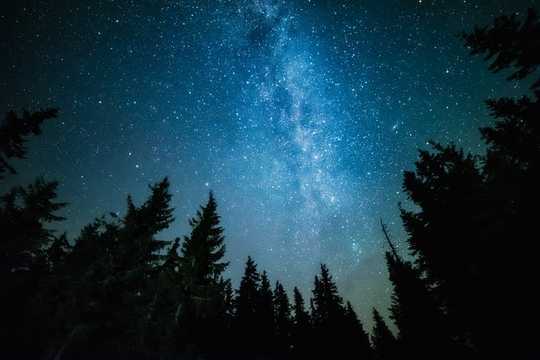 Your calendar dates back to Babylonian times. Aleksandra Pikalova/Shutterstock.com
Your calendar dates back to Babylonian times. Aleksandra Pikalova/Shutterstock.com
Waiting for the weekend can often seem unbearable, a whole seven days between Saturdays. Having seven days in a week has been the case for a very long time, and so people don’t often stop to ask why.
Most of our time reckoning is due to the movements of the planets, Moon and stars. Our day is equal to one full rotation of the Earth around its axis. Our year is a rotation of the Earth around the Sun, which takes 364 and ¼ days, which is why we add an extra day in February every four years, for a leap year.
But the week and the month are a bit trickier. The phases of the Moon do not exactly coincide with the solar calendar. The Moon cycle is 27 days and seven hours long, and there are 13 phases of the Moon in each solar year.
Some of the earliest civilizations observed the cosmos and recorded the movements of planets, the Sun and Moon. The Babylonians, who lived in modern-day Iraq, were astute observers and interpreters of the heavens, and it is largely thanks to them that our weeks are seven days long.
The reason they adopted the number seven was that they observed seven celestial bodies – the Sun, the Moon, Mercury, Venus, Mars, Jupiter and Saturn. So, that number held particular significance to them.
Other civilizations chose other numbers – like the Egyptians, whose week was 10 days long; or the Romans, whose week lasted eight.
 Some of the earliest civilizations recorded the movements of planets, the Sun and Moon. Andrey Prokhorov/Shutterstock.com
Some of the earliest civilizations recorded the movements of planets, the Sun and Moon. Andrey Prokhorov/Shutterstock.com
The Babylonians divided their lunar months into seven-day weeks, with the final day of the week holding particular religious significance. The 28-day month, or a complete cycle of the Moon, is a bit too large a period of time to manage effectively, and so the Babylonians divided their months into four equal parts of seven.
The number seven is not especially well-suited to coincide with the solar year, or even the months, so it did create a few inconsistencies.
However, the Babylonians were such a dominant culture in the Near East, especially in the sixth and seventh centuries B.C., that this, and many of their other notions of time – such as a 60-minute hour – persisted.
The seven-day week spread throughout the Near East. It was adopted by the Jews, who had been captives of the Babylonians at the height of that civilization’s power. Other cultures in the surrounding areas got on board with the seven-day week, including the Persian empire and the Greeks.
Centuries later, when Alexander the Great began to spread Greek culture throughout the Near East as far as India, the concept of the seven-day week spread as well. Scholars think that perhaps India later introduced the seven-day week to China.
Finally, once the Romans began to conquer the territory influenced by Alexander the Great, they too eventually shifted to the seven-day week. It was Emperor Constantine who decreed that the seven-day week was the official Roman week and made Sunday a public holiday in A.D. 321.
The weekend was not adopted until modern times in the 20th century. Although there have been some recent attempts to change the seven-day week, it has been around for so long that it seems like it is here to stay.
About The Author
Kristin Heineman, Instructor in History, Colorado State University
This article is republished from The Conversation under a Creative Commons license. Read the original article.
Books on The Environment from Amazon's Best Sellers list
"Silent Spring"
by Rachel Carson
This classic book is a landmark in the history of environmentalism, drawing attention to the harmful effects of pesticides and their impact on the natural world. Carson's work helped to inspire the modern environmental movement and remains relevant today, as we continue to grapple with the challenges of environmental health.
Click for more info or to order
"The Uninhabitable Earth: Life After Warming"
by David Wallace-Wells
In this book, David Wallace-Wells offers a stark warning about the devastating effects of climate change and the urgent need to address this global crisis. The book draws on scientific research and real-world examples to provide a sobering look at the future we face if we fail to take action.
Click for more info or to order
"The Hidden Life of Trees: What They Feel, How They Communicate?Discoveries from A Secret World"
by Peter Wohlleben
In this book, Peter Wohlleben explores the fascinating world of trees and their role in the ecosystem. The book draws on scientific research and Wohlleben's own experiences as a forester to offer insights into the complex ways that trees interact with one another and the natural world.
Click for more info or to order
"Our House Is on Fire: Scenes of a Family and a Planet in Crisis"
by Greta Thunberg, Svante Thunberg, and Malena Ernman
In this book, climate activist Greta Thunberg and her family offer a personal account of their journey to raise awareness about the urgent need to address climate change. The book provides a powerful and moving account of the challenges we face and the need for action.
Click for more info or to order
"The Sixth Extinction: An Unnatural History"
by Elizabeth Kolbert
In this book, Elizabeth Kolbert explores the ongoing mass extinction of species caused by human activity, drawing on scientific research and real-world examples to provide a sobering look at the impact of human activity on the natural world. The book offers a compelling call to action to protect the diversity of life on Earth.






















